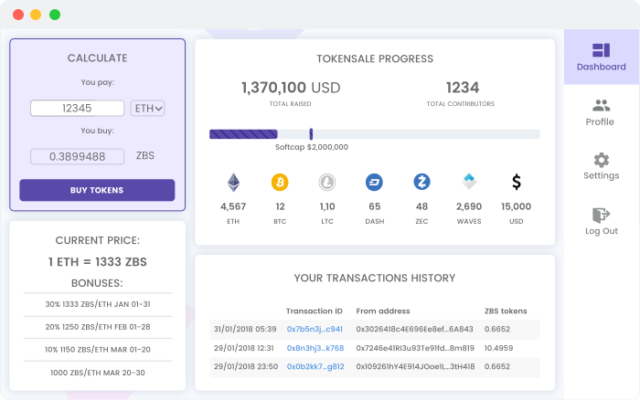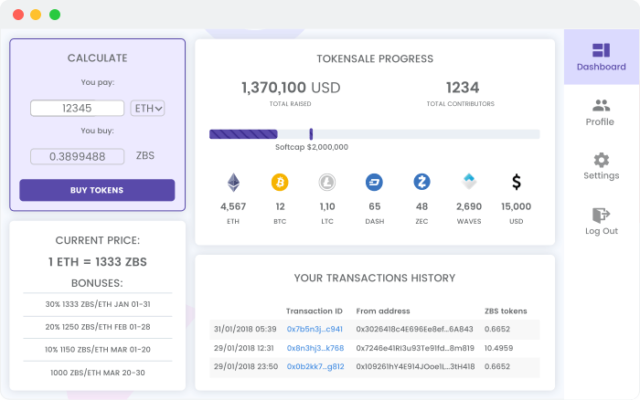
BlockStarter CTO on the ICO Boom: Lots of People Want to Invest, Few Want to Understand
BlockStarter CTO on the ICO Boom: Lots of People Want to Invest, Few Want to Understand https://csuiteold.c-suitenetwork.com/wp-content/uploads/2017/11/blockstarter-cto-on-the-ico-boom-lots-of-people-want-to-invest-few-want-to-understand-1.png 640 400 C-Suite Network https://csuiteold.c-suitenetwork.com/wp-content/uploads/2017/11/blockstarter-cto-on-the-ico-boom-lots-of-people-want-to-invest-few-want-to-understand-1.pngThese days, the ICO market is booming. Companies come up with more and more synonyms for this notion: crowdsale, token sale, contribution campaign, and so forth. Even those who have never been related to cryptocurrency, let alone invested therein, weigh on launching a token sale for different purposes.
The market is still expanding, and most new ICO’s, whatever they are called, use Ethereum-based solutions to issue their tokens and roll out smart contracts. Some companies hire blockchain / smart contracts experts to close the conceptual and technological gap, others attempt to do everything themselves, and some others even hire specialized companies to develop a customized solution for their purposes.
The hype around ICO’s has not subsided even after the notorious SEC decree that bans all such campaigns in case they don’t meet their requirements.
Bitcoinist talked with Andrei Stehno, CTO and co-founder of Blockstarter, the company developing a comprehensive platform that enables anyone to create and hold an ICO. There is some scarcity of such solutions on the market right now, so they hope their solution would be of use.
Bitcoinist: Is Blockstarter some sort of an ICO lego? How did you come up with this idea?
AS: I wouldn’t say it’s really a lego, but it’s an erector set all right. Our solution doesn’t require some in-depth knowledge of crypto technologies or smart contracts to issue a token or generate a contract. It’s not that difficult to use a regular computer interface, and lots of people do that without knowing the internal workings of a machine. It doesn’t require them to have a profound knowledge of software engineering, or any knowledge at all for that matter. Our concept mainly seeks to do the same for token sale campaigns.
If you analyze the entire process sequentially, you can understand how to make everything way simpler. You just need to create a comprehensible and manageable interface for an average computer user who knows the ideology but is not that tech-savvy. The need for such an interface doesn’t pertain solely to ICO’s. That’s the common problem of the entire cryptocurrency industry. That is one of the reasons why it still can’t reach the general public.
Bitcoinist: So you think such a solution will be demanded?
AS: We think it’s more than a demand, it’s actually needed. Take a look at announcements of ICO’s these days. Literally, thousands of new campaigns kick off every week. And it’s a truly rare occasion when they don’t use an ERC20 token or some other Ethereum-based solutions.
Bitcoinist: So, in fact, you’ll enable anyone to hold a token sale? Aren’t you afraid your solution will become a dreamboat for scammers of all sorts?
AS: We can argue a lot as to whether one needs to raise money in order to raise more money over a token sale later. What goes without any doubt is that none of those ‘raisers’ have a readily scalable solution. We’ve got the solution, but we’re not ready to roll it out straight away. We’ll hold a few token sales on our engine to create a proof of concept. When it goes far and wide, the solution will be as flexible as possible.
Of course, there’s always a risk of a scam. But, what is good, most projects try to heed the risks of dishonest ICO’s flooding the market. The recent paper by the SEC and the halt of Chinese cryptocurrency exchanges make it clear that just one major scam can disrupt the entire progress. Lots of really good projects will become impossible again, in that case, everyone knows that.

Bitcoinist: What do you think about so-called boxed ICO solutions?…



